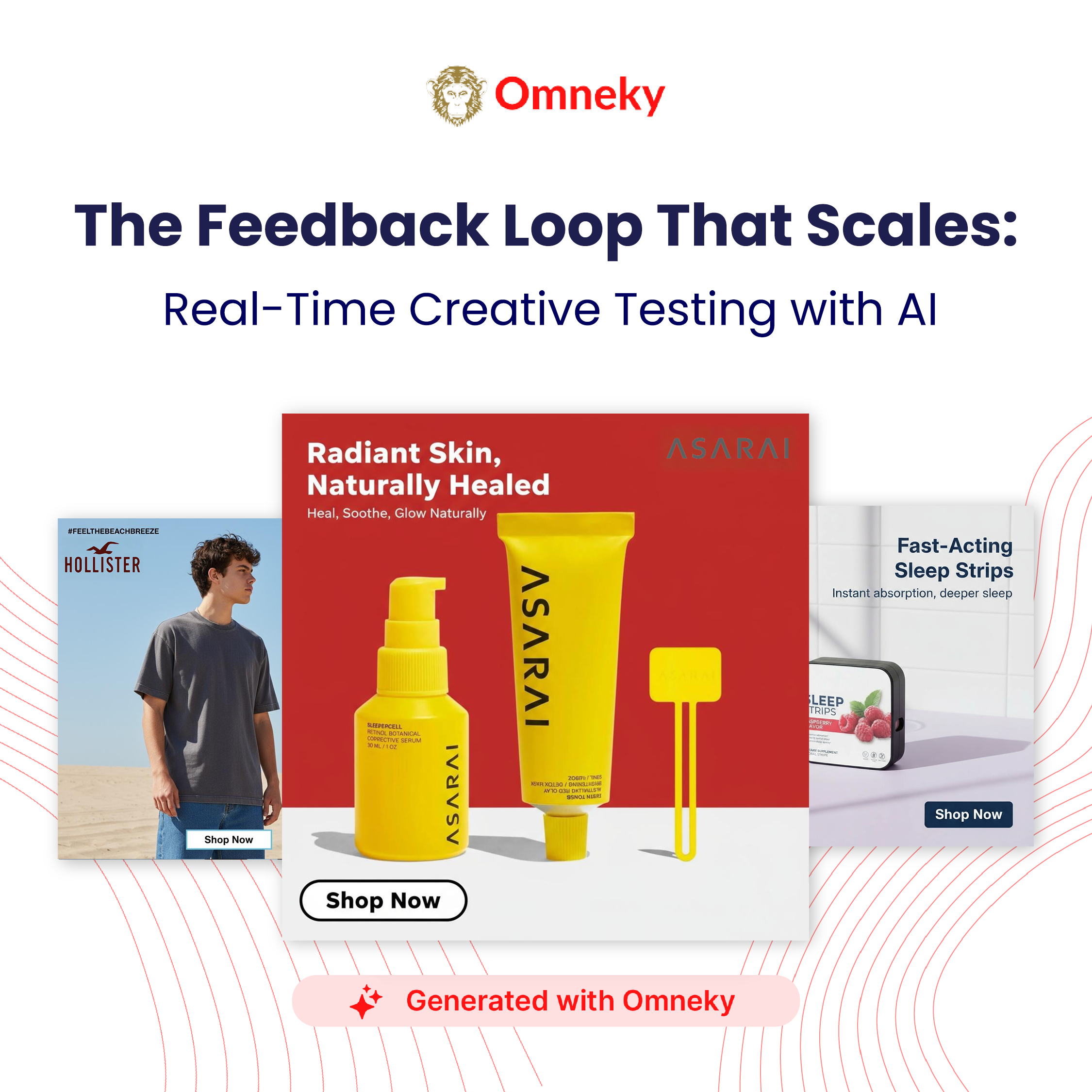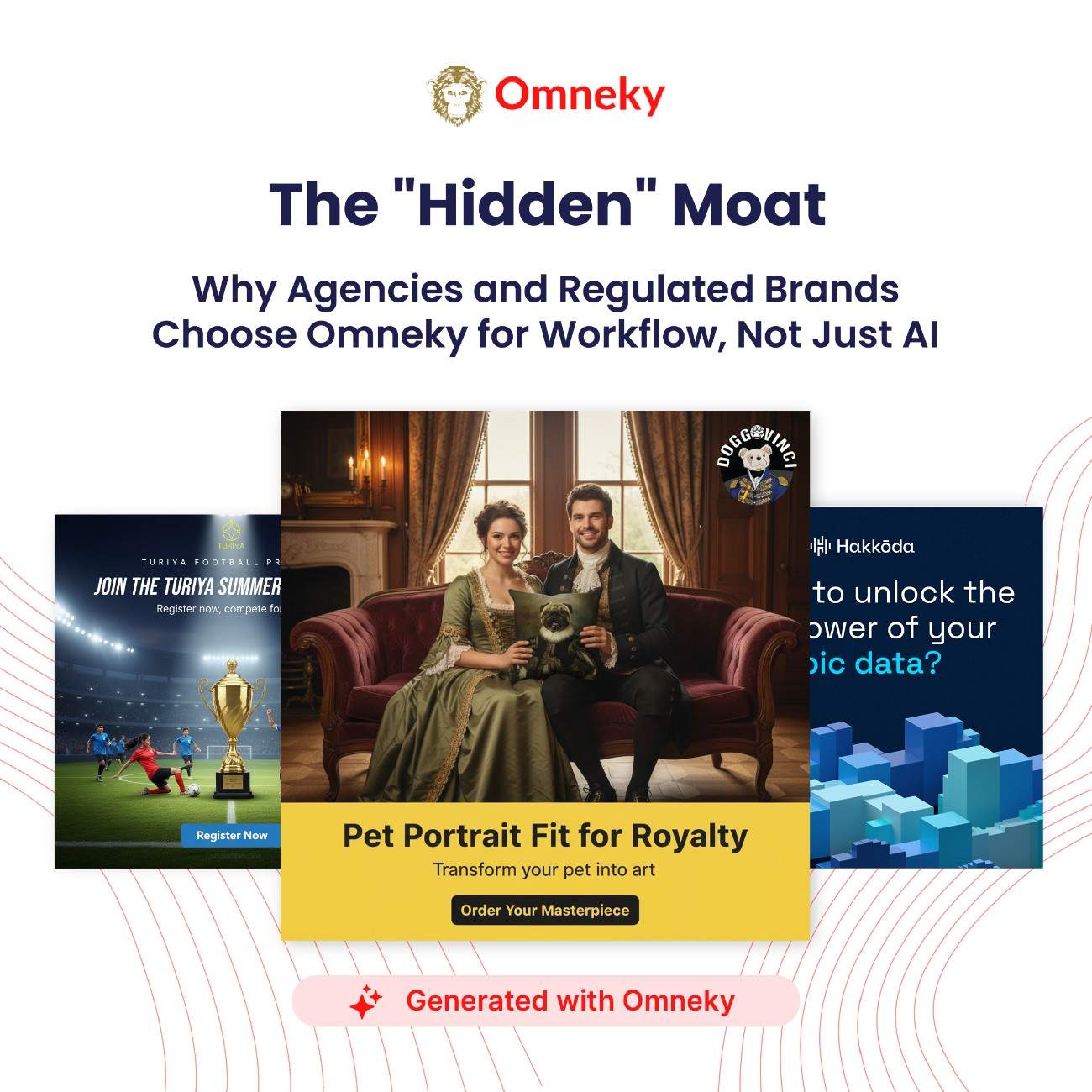Power Your Lead Generation With Omneky's AI
Omneky offers AI-powered digital advertising and content marketing tools to help businesses develop and launch more effective ad campaigns.
B2B Lead Generation Tools
Businesses use B2B lead generation tools to attract more interested customers to their products or services. Various B2B lead generation tools make it easier to track and analyze customer behavior, create and test different types of ads, personalize marketing materials based on audience segments, and much more. The types of lead generation tools that are most popular include customer relationship management (CRM) systems and AI content generation platforms.
What Is Lead Generation In Marketing?
Lead generation in marketing is the process of attracting and converting prospects (people who would most likely be interested in your product or service) into leads (people who have expressed interest in your product or service). Traditionally, marketers have used a wide variety of methods to generate leads, including email campaigns, social media, search engine optimization (SEO), and targeted advertising.
However, the introduction of AI content creation has revolutionized the lead generation process, enabling marketers to create personalized and engaging content that resonates with their target audiences more efficiently than ever before. Businesses can use AI marketing apps that employ natural language processing and machine learning algorithms to identify the most effective content and distribution channels for their campaigns.
AI content creation also enables a more efficient lead-generation pipeline by automating repetitive tasks and providing data-driven insights that can help marketers refine their strategies over time. For example, AI-powered chatbots can engage with website visitors in real-time, answering their questions and directing them to relevant content or offers based on their interests and behavior.
AI content creation is a powerful marketing tool that marketers ought not to overlook — when leveraged effectively, it can help businesses generate more leads and drive revenue growth by creating personalized and engaging content at scale, automating repetitive tasks, and unlocking new insights into customer behavior.
Lead Generation Tools In Digital Marketing
Lead generation tools in digital marketing are essential for helping businesses attract and convert potential customers into leads. Lead generation tools include landing pages, email campaigns, social media, pay-per-click (PPC) advertising, customer relationship management (CRM) systems, AI content creation platforms, and many more.
What Is Lead Generation In Digital Marketing?
Lead generation, when it comes to digital marketing, refers to the process of attracting prospects to your business's website or landing page and encouraging them to provide contact information or take some other action that identifies them as interested customers.
Digital marketing lead-generation companies specialize in helping businesses optimize their lead-generation strategies. They use a rvarietly of techniques like search engine optimization (SEO), content marketing, and targeted advertising, to drive traffic and capture leads.
What Is Lead Nurturing In Digital Marketing?
Once a lead has been captured, the next step is lead nurturing. Lead nurturing in digital marketing involves developing a relationship with a lead over time by providing them with valuable content that’s relevant to their unique pain points and interests. This can be done through email campaigns, social media, and other targeted marketing efforts.
Marketers can use a variety of tactics to improve digital lead generation and nurturing. One of the most effective approaches is creating and sharing high-quality content that addresses the pain points of your target audience. This can include blog posts, ebooks, webinars, and other resources that provide value and establish your business as an authority in your industry. You can also use AI content marketing tools to streamline the lead nurturing process and provide personalized, targeted content to each lead based on their behavior and interests.
Each organization’s perfect lead generation tools list will depend on the specific needs and goals of the business and its target audience. However, some of the most popular options, in general, include HubSpot, Marketo, Salesforce, and Pardot. These tools provide a range of features for capturing, tracking, and nurturing leads, as well as analytics and reporting to measure the success of your lead-generation efforts.
Best Lead Generation Tools For B2B
In the competitive world of B2B marketing, generating leads is crucial for businesses to survive and grow. That's where lead generation software comes in. AI-powered content creation tools like Omneky are among the best lead-generation tools for B2B marketers. These tools help businesses create highly engaging and personalized content that resonates with their target audience. AI-powered content creation enables marketers to identify the most effective content and distribution channels for their campaigns, resulting in higher conversion rates and more qualified leads.
In addition to streamlining content creation, some types of lead generation software can also help marketers with lead nurturing. By analyzing customer behavior and interests, lead generation software can segment leads based on their behavior and interests and deliver targeted content and offers that are most likely to resonate with them. This can help your business build trust and establish itself as an authority in your industry, which can ultimately lead to more sales and revenue growth.
Moreover, AI-powered chatbots and other interactive tools can engage website visitors in real-time, providing personalized recommendations and directing them toward relevant content or offers based on their interests and behavior. This creates a seamless and personalized experience for website visitors, increasing the likelihood of converting them into leads.
Lead generation software and AI-powered content creation tools like Omneky are among the top lead generation tools that businesses can use to generate more leads for their sales pipelines. By using these tools, businesses can create highly engaging and personalized content and nurture their leads more effectively.
AI Content Creation Tool
AI content creation tools for AI content generation can help your business generate leads in several ways. Firstly, AI-powered tools can analyze vast amounts of data on customer behavior and preferences to identify the most effective channels and content types for a particular target audience. This can help your business create highly engaging and personalized content that resonates with your target audience, increasing the likelihood of converting website visitors into leads.
Secondly, AI-powered content creation tools can generate personalized iterations of marketing content rapidly and automatically, saving marketers time and resources. This is especially useful for businesses that need to produce large volumes of targeted content on a regular basis. With AI content creation tools, you can quickly create high-quality content that converts, freeing up more time for other, equally important tasks that can’t be automated.
Moreover, AI-powered content marketing can help your business optimize its content distribution channels to reach a wider audience. By analyzing customer behavior data, AI tools can identify the most effective channels, helping you to maximize the impact of your marketing content and increase your lead generation efforts.
AI-powered content creation tools and AI content optimization can help businesses create highly engaging and personalized content, save time and resources, and optimize content distribution channels. These benefits can ultimately lead to improved lead generation and revenue growth over time.
Automated Ad Management
Businesses can use AI for marketing automation to make it much easier to manage ad campaigns. By using AI in advertising, your business can automate and streamline ad management to save time, improve organization, and maximize return on investment. Automated ad campaign management and optimization can not only help your business generate more leads but also improve the quality of leads being generated.
Automated ad management can help your business save time and resources by automating the process of creating, launching, and monitoring ad campaigns across multiple channels. Automating cross-platform ad management can help you expand your business’s reach more efficiently.
Additionally, AI-powered content optimization can help businesses improve ad performance. By analyzing customer data, many AI tools can identify the most effective content, images, and messaging to use for a particular target audience. This can make it easier to create more engaging and personalized ads that resonate with your target audience and generate more leads.
Furthermore, automated ad campaign management can help businesses identify the best channels through which to distribute their ads. AI tools can use customer data analysis to help you determine the most effective channels for reaching your ideal audience, enabling you to optimize your ad campaigns to reach the right prospects and generate more leads.
Automated ad optimization can also help businesses improve the quality of leads they are generating. AI tools can help you identify the most qualified leads and optimize ad campaigns to target them specifically. This can help your business generate more high-quality leads that are more likely to convert into customers.
AI Marketing Platform
Marketers can use an AI marketing platform like Omneky to help drive more leads. Omneky offers a suite of AI-powered digital advertising and content marketing tools that can help businesses develop and launch more effective ad campaigns.
Omneky's AI marketing platform includes an AI content personalization engine that enables businesses to automatically create personalized content iterations for each individual customer based on their behavior and preferences. This capability can help your business build stronger relationships with its target audience and increase engagement, which ultimately leads to better lead generation. Additionally, Omneky's AI ad generator can help you identify the most effective content, images, and messaging to use in your ad campaigns based on the audience(s) you are targeting.



